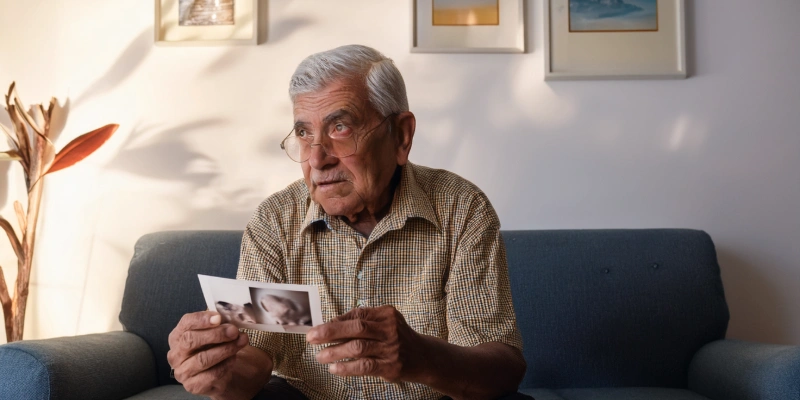Dementia

Dementia is a group of conditions that affect memory, thinking, behavior, and the ability to perform everyday activities, most often caused by progressive brain disorders.
Quick Facts
- Dementia is not a normal part of aging
- It involves a gradual decline in cognitive function
- Alzheimer’s disease is the most common type of dementia
- Symptoms worsen over time
- Early diagnosis can help with planning and symptom management
Symptoms of Dementia
Dementia symptoms vary by type and stage but commonly include:
- Memory loss affecting daily life
- Difficulty with problem-solving or planning
- Confusion about time or place
- Trouble finding words or following conversations
- Changes in mood, personality, or behavior
- Difficulty performing familiar tasks
What Causes Dementia?
Dementia is caused by damage to or loss of nerve cells in the brain, which interferes with communication between brain regions. Causes vary depending on the type of dementia and may include:
- Alzheimer’s disease
- Vascular disease affecting blood flow to the brain
- Lewy body disease
- Frontotemporal disorders
- Traumatic brain injury or other neurological conditions
Symptoms of Dementia
You may be at higher risk for dementia if you:
- Are older in age
- Have a family history of dementia
- Have cardiovascular disease or diabetes
- Have experienced repeated head injuries
- Have limited physical or cognitive activity
Treatment Options for Dementia
There is no cure for most forms of dementia, but treatment focuses on managing symptoms and supporting quality of life. Options may include:
- Medications to help manage memory or behavioral symptoms
- Cognitive therapy or mental stimulation activities
- Management of underlying conditions such as high blood pressure or diabetes
- Supportive care for patients and caregivers
- Care planning and safety strategies
Specialties That Treat This Condition
What To Do Next?
If symptoms persist or interfere with daily life, a healthcare provider can help evaluate the cause and discuss appropriate next steps.
Medical Disclaimer: This content is provided for general educational and informational purposes only and does not constitute medical advice, diagnosis, or treatment. Conditions and treatment options vary by individual. Always consult a qualified healthcare provider regarding symptoms or medical concerns.



